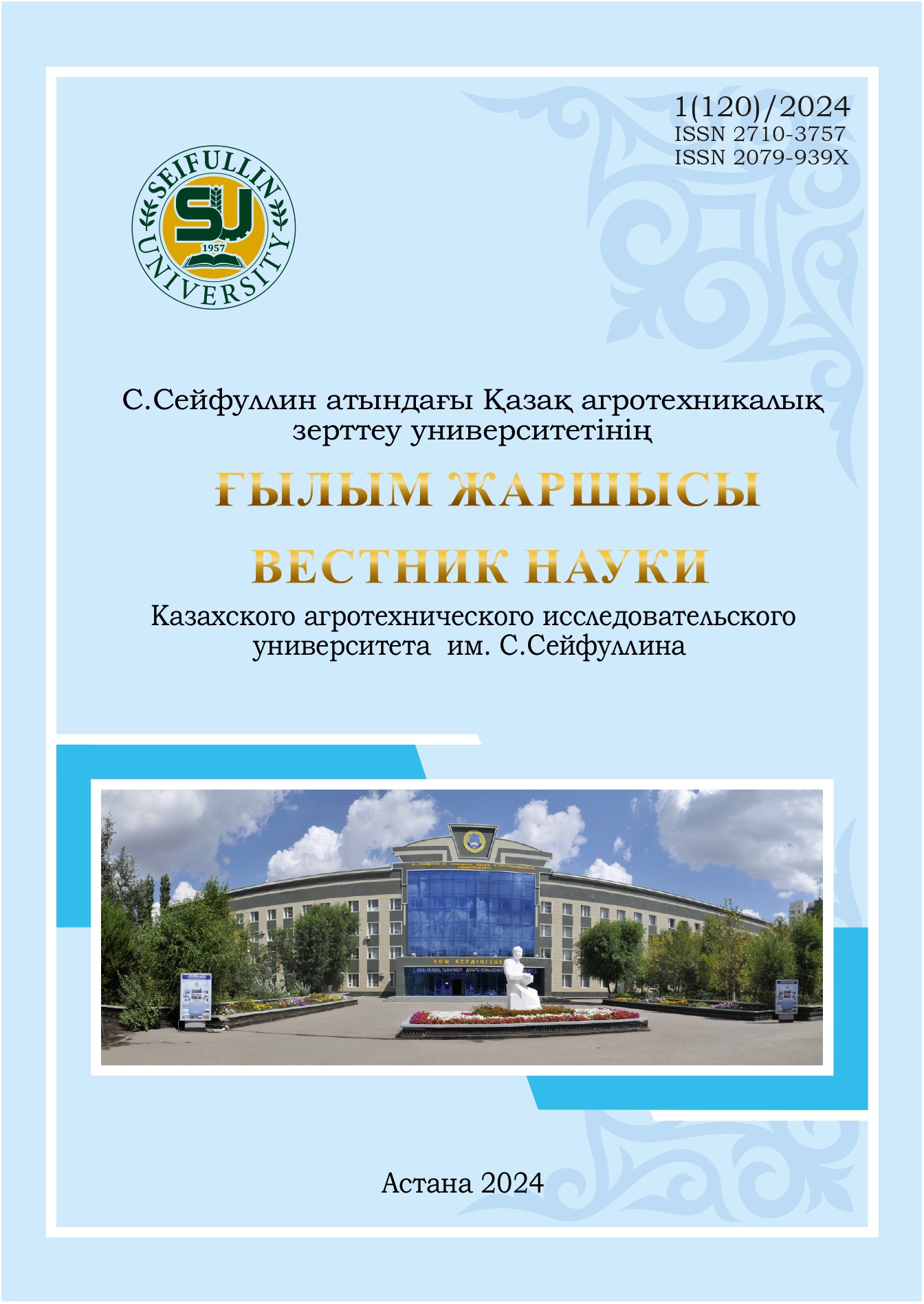THE EVALUATION OF SOYBEAN VARIETIES OF DIFFERENT ORIGINS FOR COLD RESISTANCE
DOI:
https://doi.org/10.51452/kazatu.2024.1(120).1602Keywords:
soybean; cold resistance; varieties; gene pool; screening.Abstract
The experiment was carried out with the aim of more stringent selection for cold resistance of a collection of soybeans of various origins. The control variants were germinated at a temperature of 25±1 ºС in a thermostat, the experimental variants were exposed to a low positive temperature of 10±1 ºС for 5 days, then transferred to a thermostat and germinated together with the control ones for four days, followed by assessment of the cold resistance and cold sensitivity of soybean varieties. Based on resistance to low positive temperatures, laboratory screening revealed a different reaction of the soybean collection under study. The Beidou 47 variety showed good seed germination up to 96% in the control variant and was characterized by high germination energy on the third day, while in the experimental variants the appearance of seed sprouts was observed a little later. It was revealed that the percentage of germinated seeds of soybean varieties is influenced by many factors, except temperature. Laboratory screening of a collection of soybeans of various origins for cold resistance and cold sensitivity made it possible to identify a number of varieties that are recommended for practical use in the breeding process as sources with high resistance to low positive temperatures, which often arise during the growth and development of the crop in the conditions of Northern Kazakhstan. As a result of the research, the most cold-resistant varieties were identified: Kendou 61 (China), Beidou 47 (China), No. 78 (Kazakhstan), No. 57 (Kazakhstan), No. 83 (Kazakhstan), No. 113 (Kazakhstan), No. 114 (Kazakhstan), K-0124 (Kazakhstan) and K-0129 (Kazakhstan).

